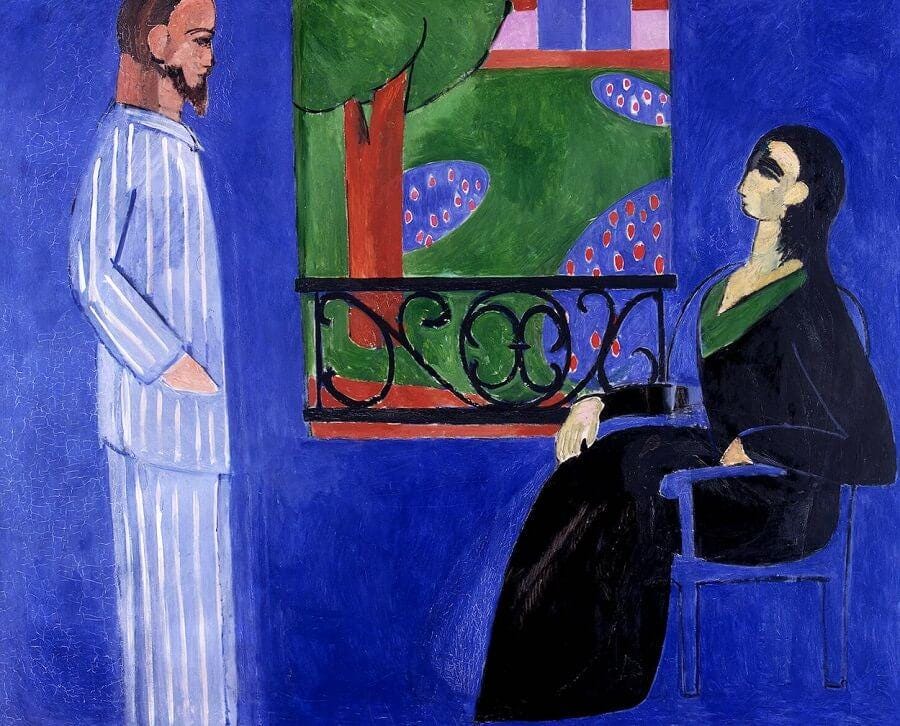How Nonviolent Communication is Changing My Life (and Maybe Yours Too)
Is that a request or a demand?
Greetings from Mildred the Groundhog's garden! I am making a futile effort to protect a few plants from my resident voracious and beloved marmot this year, but of course I expect her to find a way to eat everything anyway. As I speak, she is going full Templeton on my compost pile. I was able to capture some fuzzy, Bigfoot-style footage of her in the act, which is precisely the kind of high quality content you're missing out on if you aren't following me on Instagram.
Mildred updates aside, I am writing mostly to let you all know that starting next week I'll be hosting a virtual book club and workshop around the book “Nonviolent Communication,” by Marshall Rosenberg. I have only just begun to implement this book's principles and methods in my own life, but it has already had enormously positive effects.
One of my great frustrations with the “everything is genetic” arguments of behavioral genetics is the conflation of innate traits with environmentally adaptive behavioral patterns from our childhood. In dysfunctional, codependent families like mine, we had three rules: don't talk, don't trust, don't feel. Whatever natural and spontaneous capacity I may have had to attune to my own feelings and needs—let alone communicate them to others—was very effectively smothered out of me on a daily basis for the first half of my life. It is simply inaccurate to say that being a self-loathing people-pleaser is my “personality.” It has been my survival strategy of choice, and one it has taken me until midlife to even begin to outgrow. (And believe me—not everyone in my life is exactly thrilled about me outgrowing it!)
For me, rewriting those deep, fundamental rules of my life isn't easy or intuitive. It requires some serious scaffolding. I need a lot of structure and very specific tools to learn new ways of being in the world that are awkward and wildly uncomfortable at first. Wanting—even desperately wanting—to be a more effective and regulated communicator isn't enough, any more than you can learn to speak a new language or play a new instrument without years of practice.
Nonviolent Communication (or NVC) is that kind of scaffolding. It's a set of specific practices and techniques to bring focus to the feelings and needs simmering beneath any interpersonal conflict. It supports its participants in not just conducting a rigorously honest conversation, but a very empathetic one as well. It's a way of doing “crystal clear” in a beautifully compassionate way, with just as much compassion for ourselves as for the other person.
Perhaps most powerfully, NVC has given me the ability to stay present with my needs in a context where I would otherwise feel overwhelmed by someone else's. For those of us who grew up with and who have a tendency to find ourselves in relationships with strongly disagreeable or narcissistic people, we often don't have the faintest clue how to remain connected with ourselves when someone else wants something from us. That means we will usually either try to meet the other person's needs while abandoning our own (which leads inevitably to feeling a lot of resentment) or we ghost the relationship in a desperate act of self-preservation.
For me, NVC feels like an almost magical way to remain in difficult relationships without having to make a choice between those two terrible options. Because once we have identified our own unmet needs with absolute clarity, they aren't negotiable anymore. No one can invalidate them by having bigger, louder needs. All they can do is not meet them—but that's a lot less scary. I can hold the line with someone who simply isn't meeting my needs a lot better than I can with someone who feels like an existential threat to them ever getting met.
You can watch my latest YouTube video on NVC here:

